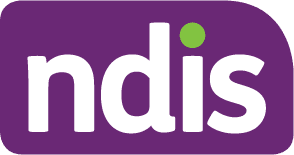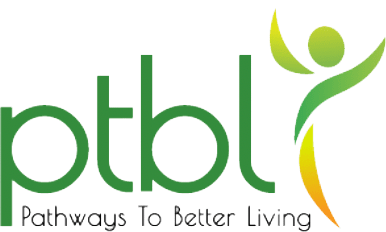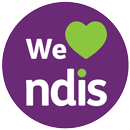Pathways to Better Living Pty Ltd – Severe Dysphagia Management Policy
Introduction
Our organisation is committed to providing appropriate supports to each participant that requires dysphagia management, including severe dysphagia management. All supports we provide will be risk-managed and based on each participant’s individual needs and preferences.
| When |
| applies when assisting participants with managing their dysphagia. |
| Who |
| applies to all employees, Independent Support Workers and key management personnel involved in any dysphagia management. |
Causes of dysphagia
Dysphagia is a medical term referring to difficulties with swallowing. Dysphagia is associated with a variety of health conditions and disabilities. Some common causes include:
- stroke
- head injuries
- dementia
- reflux
- muscle problems in the face or neck
- cerebral palsy
- structural difficulties, such as damage to the lip.
Certain medications can also increase the risk of dysphagia.
Knowing the cause of the dysphagia is vital for developing and maintaining effective management and treatment strategies for each participant.
Signs and symptoms
Some signs and symptoms of dysphagia include:
- painful chewing and/or swallowing
- avoiding certain foods because they are hard to swallow
- shortness of breath when eating and drinking
- having long mealtimes e.g. taking more than 30 minutes to finish a meal
- regular coughing during or after a meal
- feeling that food gets stuck in the throat or goes down the wrong way
- regurgitating undigested food
- dryness in the mouth
- poor oral hygiene
- drooling
- difficulties with controlling food or liquid when it is in the mouth
- having a hoarse orf gurglingly voice
- frequent heartburn
- frequent respiratory infections
- unexpected weight loss.
If any of the following are present, professional advice and a diagnosis must be obtained.
Choking
Participants with dysphagia, especially severe dysphagia, face a higher risk of choking. Instances of choking should be treated seriously, as choking can result in severe injuries and death.
The signs of choking can vary depending on the severity and cause of the obstruction. Signs of choking include:
- clutching at the throat
- neck or throat pain
- inability to talk, swallow and/or breathe
- coughing, wheezing or gagging
- chest pain
- inability to make any sounds at all
- no air coming out of nose or mouth
- unusual breathing sounds, such as wheezing or whistling
- a change of colour in the body (e.g. blue lips, face, earlobes or fingernails)
- loss of consciousness
Health professionals involved in severe dysphagia management
Management for dysphagia should always be done with guidance from appropriately qualified health professionals. The types of health professionals involved may depend on the participant’s specific needs and the cause of their dysphagia.
In general, advice, assistance and guidance will need to be obtained from the following health professionals:
- speech pathologists
- doctors
- dieticians
- pharmacists
- physiotherapists
- occupational therapists
Assessing dysphagia management needs
Our organisation will ensure that every participant that requires dysphagia management is identified.
With the participant’s consent, we will assist the participant to access the services of an appropriately qualified health professional for:
- assessment
- diagnosis
- treatment options
- development of a suitable mealtime management and dysphagia management plans.
In addition, we will ensure that an appropriately qualified health professional conducts regular and timely reviews of the participant’s plans as often as necessary. This may need to be done if:
- the participant’s needs change
- additional difficulties are observed.
We will undertake ongoing monitoring and evaluation of each participant’s dysphagia to ensure all plans are up-to-date.
Dysphagia management plans
Each participant requiring dysphagia management will be involved in the assessment and development of their dysphagia management plan. The dysphagia management plan must cover:
- the participant’s individual needs and preferences (relating to food, fluids, preparation techniques, feeding equipment and any other relevant areas of dysphagia management)
- how risks, incidents and emergencies will be managed to ensure participant wellbeing and safety
- actions and plans for escalation (in cases of incidents and emergencies).
We will ensure that dysphagia management plans can be accessed by all relevant workers and participants.
Mealtime management plans
In addition to a dysphagia management plan, participants will require a mealtime management plan. The mealtime management plan must be developed in accordance with our Mealtime management policy.
Worker training
Comprehensive training and knowledge is important for identifying and managing all levels of dysphagia. It helps to minimise risks of serious health complications and improve quality of life.
Our organisation will ensure that each worker that will be undertaking dysphagia management has the ability to do so in a safe and effective manner. This will be done through worker training. Each worker undertaking dysphagia management must have a training plan in place.
An appropriately qualified health practitioner with expertise in severe dysphagia management will deliver training.
All training will cover the requirements of the NDIS Practice Standards High Intensity Skills Descriptor for severe dysphagia management.
Worker training will cover:
- the specific needs and preferences of the participants the worker will be supporting
- the specific skills needed to carry out every aspect of each participant’s mealtime and dysphagia management plans
- the signs and symptoms of dysphagia
- how to monitor for symptoms of dysphagia
- the NDIS high intensity support skills descriptor for severe dysphagia management
- risks associated with dysphagia and relevant management strategies
- the use of relevant feeding and swallowing aids (e.g. assistive plates and bowls, adaptive utensils, drinking aids)
- procedures and actions for identifying and responding to early signs of dysphagia
- procedures and actions for responding to dysphagia-related emergencies and incidents, including:
- immediate first aid emergency response to ensure safety, such as cardiopulmonary resuscitation (CPR) and relevant emergency choking protocols
- how and when to contact emergency services
- how and when to escalate incidents to key management personnel
- how to provide safe and enjoyable meals in line with:
- our Mealtime management policy
- the advice of qualified health professionals
- each participant’s mealtime management plan
- all relevant health standards and regulations
- if required, how to prepare texture-modified food and drinks, in line with the participant’s dysphagia management plan.
Risk management
Participants with severe dysphagia are at higher risk of a variety of health complications, including:
- dehydration
- poor nutrition
- pulmonary aspiration
- choking
- respiratory illnesses.
Our organisation will proactively manage dysphagia-related risks by:
- following expert advice and plans provided by qualified health practitioners
- ensuring all relevant workers have access to and understand expert advice and plans provided by qualified health practitioners
- ensuring our risk management practices in line with our Risk management policy and all relevant legislation
- conducting a dysphagia risk assessment for every participant
- regularly reviewing and updating each participant’s risk assessment in response to changing participant needs
- ensuring workers are familiar with all relevant risks and are implementing risk management strategies
- analysing and managing dysphagia-related risks:
- during staff meetings
- in participants’ documentation
- during day-to-day procedures
- when managing participant intake, transition and exit
Incident management
Severe dysphagia can result in very serious and life-threatening incidents. Our organisation will foster a proactive incident management culture by:
- ensuring our workers are properly trained in procedures and actions for responding to dysphagia-related emergencies (e.g. choking) and incidents, including:
- immediate emergency response to ensure safety (e.g. cardiopulmonary resuscitation)
- how and when to contact emergency services
- how and when to escalate incidents to key management personnel
- conducting incident management practices in line with our Incident management policy and all relevant legislation
- recording appropriate procedures and actions for responding to dysphagia-related emergencies and incidents within each participant’s dysphagia management plan
- regularly reviewing our approaches to incident management and associated documentation.
Responsibilities of key management personnel
Responsibilities of key management personnel include:
- engaging the services of appropriately qualified health professionals
- arranging training of workers and organise worker training plans
- reviewing the effectiveness of worker training
- ensuring that all dysphagia management approaches are risk-managed
- communicating changes to policies and/or practices to all relevant workers
- ensuring workers can access all relevant policies, procedures and plans
- regularly auditing dysphagia management practices
- responding to escalated incidents.
Responsibilities of workers
Responsibilities of workers include:
- providing supports that are within the scope of their role
- taking part in worker training
- ensuring full understanding of worker training content and materials
- providing supports in accordance with each participant’s mealtime management and dysphagia management plans
- monitoring participants for any changes to their needs and preferences
- managing immediate response to emergency situations in accordance with each participant’s dysphagia management plan
- escalating emergencies and other incidents to the appropriate people (e.g. emergency services, key management personnel and qualified healthcare practitioners).



